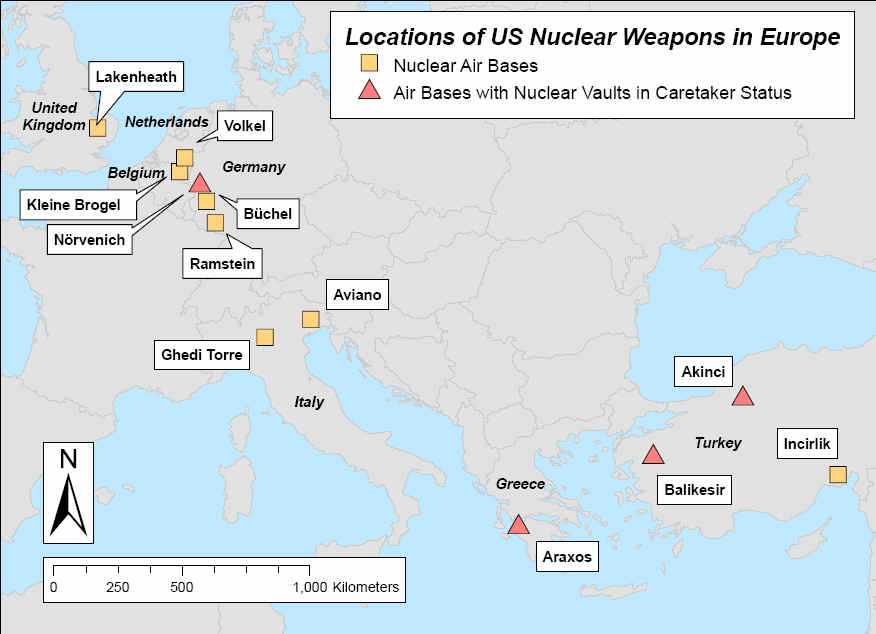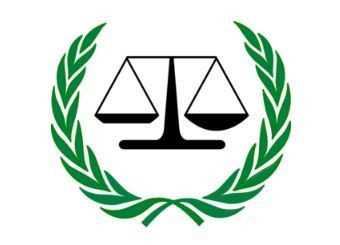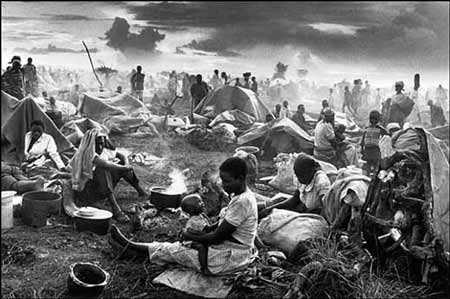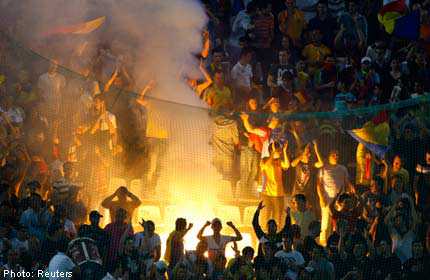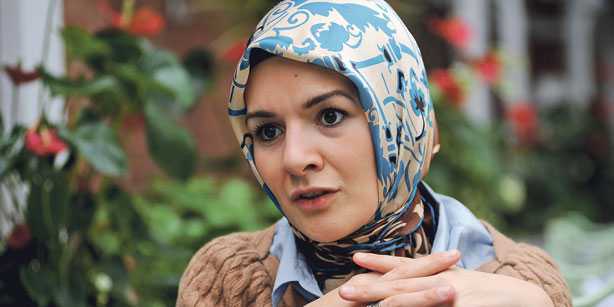
Mahinur Özdemir
Özdemir has stressed that she wishes not to be recognized or mentioned for her headscarf but for her political achievements. The road to parliament was not the easiest for this 28-year-old Catholic school graduate, who went on her first political campaign in 2006. Her journey began while she worked at her father’s market, after which she became a member of her city’s municipal council.
During the election campaign, Özdemir’s party used a photograph of her that was displayed in such a way as to conceal her headscarf. This led to debates, with her party denying that it tried to hide her headscarf, saying the image was prepared by outside sources. However, despite the hurdles, Özdemir won a seat in the Brussels regional parliament. Today’s Zaman caught up with the young deputy to discuss growing up in Belgium, her family, Belgium’s immigrant population and the experience of being sworn into parliament.
| In 2009, at the age of 26, Mahinur Özdemir won a seat in the Belgian parliament as a member from the cdH. She was not the first Turk to become a deputy, but because she wore a headscarf, cameras both in Belgium and around the world were on her. Özdemir explains how she managed to win a seat in parliament at a time when Islamophobia was on the rise throughout Europe |
Asked how her family came to Belgium, Özdemir said her maternal grandfather, Hasan Malak, was the first person from her family to come to Belgium. Five months later, he brought his wife and their five children. This was the year 1969. “They had three more children. Like many Turks in Belgium, we are from Emirdağ. My grandfather settled in a town near Luxembourg, which had no Turks in it. He worked on a farm. They were very nice to him. He still keeps in touch with the families there,” she noted.
Özdemir comes from a big family, and being the oldest of 33 grandchildren has given her a great support system. “My parents wed in 1981. They started living in Schaerbeek. My father graduated from İstanbul University’s department of history. And I am the oldest of 33 grandchildren. My father played a big role in my educational and social life. I have four siblings: one sister and three brothers. In total we are five children. My younger brother is continuing his doctorate. He has the potential to become an academic. My sister works in the private sector and is very successful. My other two brothers are still in school. One goes to high school and the other goes to primary school. Schaerbeek is a historic municipality with a population of 130,000 and has a cute Turkish neighborhood as well. It is the sixth biggest municipality in Belgium. I have been a member of the Schaerbeek Municipal Council since 2006,” she said.
A musical ear
Özdemir’s love of music comes from her family. From Turkish folk music to classical piano, Özdemir has tried it all. “I have an ear for music, just like my mother. I learned how to play the piano by myself at a very young age. Then I took professional piano and solfège lessons for three years at the Music Academy. I also liked Turkish folk songs, and I quickly learned how to play the saz. I still love to play the saz and piano, but I don’t have as much time to play them as I used to. I also do professional photography, and I plan on opening my first personal photograph exhibition in the near future. I like to read. I have a good knowledge of French literature in particular. The one topic I keep a very close track of in Turkey is Beşiktaş. I have an interest in sports because I played volleyball in school for quite a long time. Ever since I was a kid people have said I would become either a lawyer or a politician, but I never thought of politics. I think some of the choices I made in the race of life brought me to where I am today,” she said.
Özdemir explained that going to a Catholic school in a multicultural country was not all that unusual for her and that her original goal was to study law. “I started kindergarten when I was two-and-a-half years old. Kindergarten in Belgium lasts three years and education is compulsory until the age of 18. I went to a Catholic school because it offered a good education. I know the Bible very well. I learned about my own religion from my family and the Belgian branch of the Religious Affairs Directorate Foundation. I went to the foundation every weekend and to the Catholic school on weekdays. I was a high-achieving student. I never felt discriminated against because I am Muslim. I joined the school choir when I was in elementary school. I know every Christmas carol and the hymns, too. I studied in the department of Latin chemistry-math for six years in high school. I speak Turkish, English, French and Dutch. I am also familiar with Spanish, Italian and German. After such an intense high school education, everyone, including my teachers, expected me to study pharmacy or medicine. My primary choice was law. But when I discovered that I would not be able to work as a lawyer with my headscarf, I was devastated, and so I decided to study another field, but perhaps it was that choice that brought me to where I am today.”
A successful young Turkish immigrant population is forming’
Özdemir double-majored in economics and political science and did her master’s in public administration. She was one of 15 Turks in a class of 500. “A successful young Turkish immigrant population was developing, but no one knew each other,” she explained, adding that “a couple of my friends and I decided to set up a Turkish students association at the university called La Turquoise. At first there weren’t many Turkish students in universities in Belgium, maybe 40 or 50 and 100 at best. Our association set an example for students in other universities.”
Özdemir must have had leadership qualities from day one as she was elected to the student council. “As a member of the student council, I kept close track of all problems that were brought up in decision-making mechanisms. After all, I am a Turkish Belgian. I don’t have any issues with my identity. I am both Belgian and Turkish. I am also a Muslim, a women and a young adult. Many European immigrant youths have this thing where they don’t feel like they are a part of ‘here’ or ‘there.’ They feel like they are stuck in the middle, in limbo. I refused to think like that. I did not want to be another example of an unhappy Turk. The key is being able to live with these different identities. As citizens of immigrant origin we are part of Belgian society. While a member of the student council at the university I realized how important it is to be involved in decision-making mechanisms. If you don’t explain or express yourself, other people will characterize you and sometimes in an incorrect way, and then you will inevitably end up representing the image contrived by someone else.”
Explaining her relationship with the Humanist Democratic Center (cdH), Özdemir said she acted with civic awareness and voted for a party that supported her ideas in 2004 and then immediately afterwards became a member. “Why did I choose this party?” she asked. “Because it was a humanist party and gave priority to education and human values in its party bylaws. Belgium is a country that has a very high divorce rate. It ranks among the top 10 countries. This is a serious problem for immigrant families as well. The party’s unifying feature stood out to me. I started getting involved in the party’s meetings. At first they were very surprised because young people don’t show much interest in politics in Europe. There have been reports that I am a deputy from a Christian Democrat party, but the word ‘Christian’ is not mentioned in the party’s name. The cdH is obviously a former Christian party, but it changed its name nine years ago and developed a more inclusive identity.”
‘I stood out because of my ideas’
Özdemir wasn’t all that sure how well accepted she would be when she first entered politics. “I stood out in the party because of my ideas. I would study the content of the program before meetings and always be prepared,” she said.
However, soon thereafter, in 2005, the party’s group deputy chairman suggested she run for a seat on the municipal council in local elections, which were scheduled for the following year. “After considering the offer for two months, I accepted it. After consultation, I was 18th on the candidate list. I was low on the list but because of the preferential votes I received, I became third on the list and won a seat on the municipal council in 2006. There are around 10 politicians of Turkish origin from various parties in the 47-seat municipal council,” she explained.
Özdemir noted that conducting her election campaign while working as a cashier at her father’s grocery market, which was close to 800 square meters in size, in the Turkish neighborhood they lived in was very advantageous. “I was able to promote myself directly to people and hand out my business card. You communicate directly with the people who come to the market and have an opportunity to listen to their views and understand the issues that the community is sensitive about. In a sense, you become a social advisor, especially when you’re one of the few young people in the neighborhood that has gone to university,” Özdemir said.
While noting that focusing on the problems of Turks alone during her election campaign was not the route she took, Özdemir said she spoke with people at markets, went door-to-door, ringing doorbells. “I tried to access everyone. The party had only two seats in the municipal council in 2006, and I went up from 18th to third on the list. I received more votes than many high-level politicians. The number of seats the party occupied in the municipal council went up to five. Our chairwoman is a visionary woman. As someone who managed to move up from so far behind, she wanted to get to know me. The party first gave me the duty of teaching about conscientious citizenship. My work was appreciated, and I was assigned different responsibilities. I worked as an executive assistant and most recently as the party’s political advisor. I became a candidate for regional elections in 2009. No party had a candidate who wore a headscarf, but with the support of our chairwoman, I was made 21st on the candidate list. My party had 10 seats in parliament and, with the preferential votes I received, the party was able to send 11 deputies to parliament. I continue to hold a seat in the municipal council, parliament and the cdH’s Central Executive Board,” Özdemir said.
First time parliament was so crowded in 21 years
One day Özdemir will not be able to forget is the day she was sworn into parliament. “The one thing I can’t forget about the swearing in ceremony was my parents sitting in the balcony. The whole place was jam-packed. The parliament building is 21 years old, but it had never been so crowded before that. I was excited. I wondered what lay ahead of me. Some people had petitioned the Constitutional Court to have my swearing-in ceremony cancelled. My party supported me all the way. The dress code in the Belgian parliament is normal. They don’t overdo it with the suits. We live like ordinary people. Everyone dresses the way they want to. They find the way I match my scarves very interesting. They asked me how many scarves I own,” she said.
So what would Özdemir be doing if her attempt to be active in politics had failed? Well, something to do with food, she says. “Had I not been able to win in the 2009 elections, I was thinking of opening a restaurant that served organic food. I am very good in the kitchen, and I love to make foods and present dishes in nice ways. But I was involved in a car accident last year. Parliament opened after the swearing-in ceremony, and a week later a car crashed into mine as I was leaving parliament. I was in the hospital for a week. I have three platinum plates in my right arm now, but they will be surgically removed.”
‘My husband is my support system’
Özdemir said her husband has been great support all along and was behind her in all her endeavors. “He has a good command of the political lexicon. He is a good lawyer. He sometimes has a different perspective on different incidents. I can say that he makes my life and job easier.”


